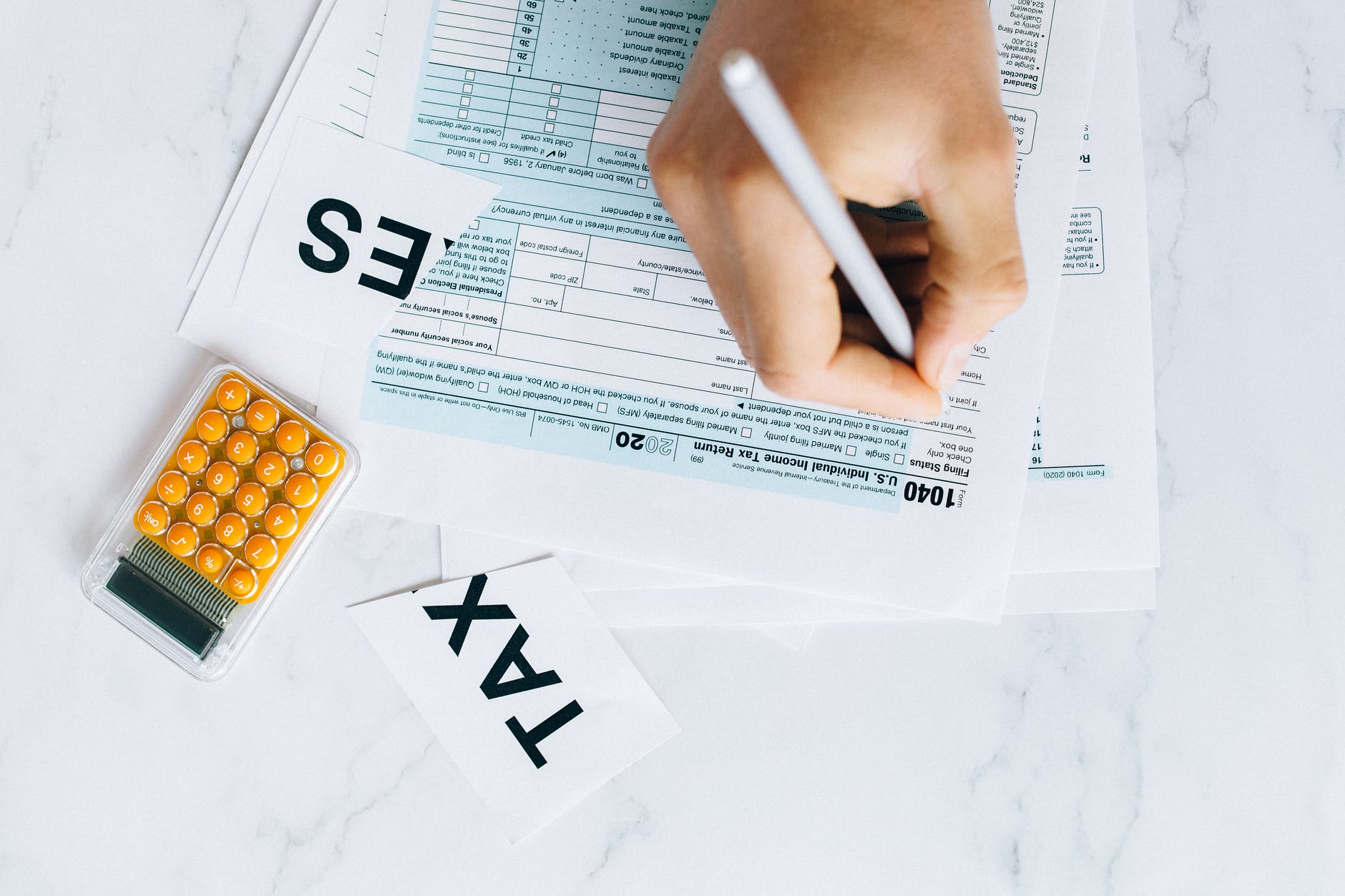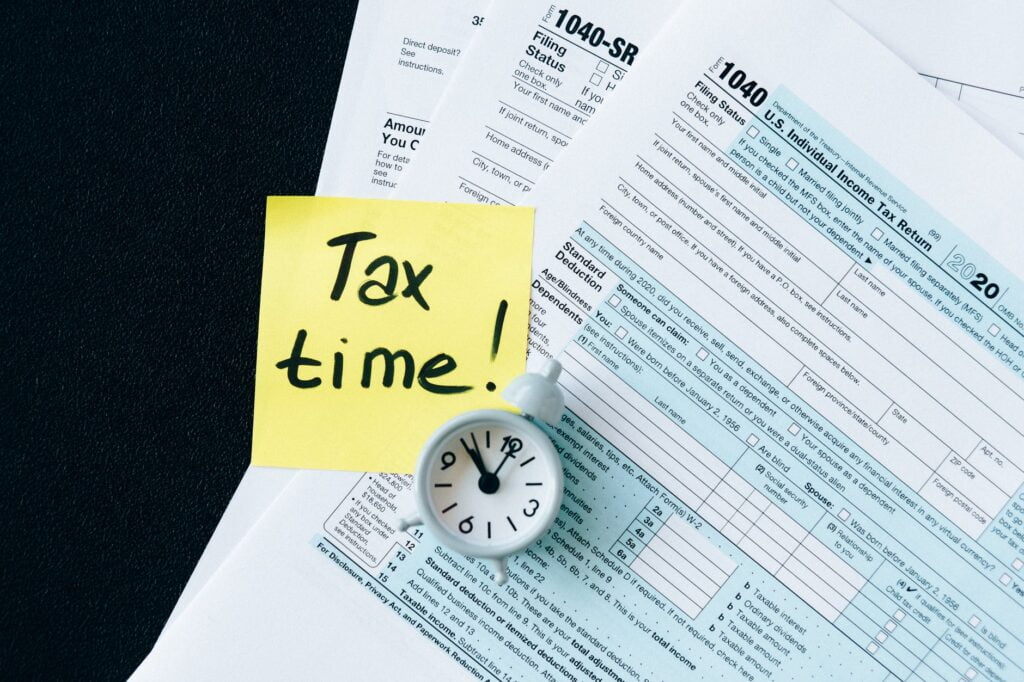Small Business Tax Deductions
by Sumona Finance Published on: 15 January 2022 Last Updated on: 18 January 2022

Identifying all of your expenditures and those that are tax-deductible for your small business is one of the simplest ways to make your firm more profitable—without working any harder. These restrictions also apply to anyone who earns money as a self-employed or independent contractor. Continue reading to learn more about small business tax claims and how to pay less tax on your small business tax deductions.
What is a Small Business Tax Deduction?
Small business tax deductions are an expense that you can claim from your taxable income is known as a tax deduction or “tax write-off.” With this, you can take the cost of the expense and deduct it from your taxable business income.
Tax write-offs allow you to pay a lower tax payment. However, the expense must meet IRS requirements for a tax deduction.
What Can I Deduct?

A company expense must be both ordinary and necessary to be deducted. In your industry, an ordinary expense is usual and accepted. A necessary business expense is beneficial to your profession or industry. A company cost does not have to be absolutely required for compulsory expenses.
Even though an item is reasonable and necessary, you may not be able to deduct it in the year in which small business tax deductions were paid or incurred. You may not be able to deduct the expense at all in some circumstances. As a result, it’s critical to distinguish between ordinary business expenses and those containing the following.
- The business expenses are used to figure the cost of sold goods.
- Capital expenses.
- Personal expenses.
What are the Tax Deductions for Small Businesses?
A comprehensive list of write-offs frequently available to sole proprietors and firms formed as partnerships or limited liability companies (LLCs) is provided below. Some are business-related deductions, while others are personal deductions that a small business owner should know. Consider the following as a checklist for small business tax deductions:
1. Home Office Deduction
You may be wondering if you qualify for small business tax deductions relief for the home office deduction after millions of Americans were forced to work from home due to the Coronavirus.
If you are self-employed or own a small business, the answer may be yes. Assuming you utilize the area solely for business purposes and that it is your central location.
2. Business Use of Car Tax Deduction
Even if you work at home, most entrepreneurs utilize their personal automobiles for business purposes in some capacity. If you use a car only for business purposes, you can claim the entire cost of ownership. However, if you use your car for both work and personal purposes, you can only deduct the business costs.
You have two options for calculating your car tax deduction for business use. Calculate your tax savings and choose the one that will save you the most money.
Option 1: Regular Mileage Rate
This amounts to $0.575 per mile traveled for business in 2020. In 2021, this lowers to $0.56 every mile driven. So, in 2020, if you drove 10,000 miles for work, you’d earn a $5,750 tax break.
Option 2: Expense method based on actual costs
Keep note of all of your car-related spending for the entire year. Gas, oil changes, maintenance, tires, insurance, registration, and leasing payments are all included.
Calculate your small business tax deductions amount by multiplying these expenses by the proportion of time spent on business. So, if you traveled 10,000 miles in a year, spent $10,000 on gas, and used your car 80% for business, you’d earn an $8,000 tax break.
3. Business Retirement Plan Contributions
Many people in business can reduce their tax payments by paying themselves first. Setting up a retirement plan is the most popular approach for small business tax deductions to assist their employees in saving for retirement.
Employee contributions can also be made by the company, including the owner. You may be able to contribute up to $57,000, depending on your payslip. For enterprises that currently have a 401(k) plan, the company can contribute 25% of payroll as a profit-sharing contribution, on top of any matching provided by the 401(k) plan.
4. Advertising and Promotion Tax Deductions
Any costs associated with promoting or advertising your company are fully deductible. Some things are self-evident, such as the cost of a website and its associated fees (i.e., web hosting, design, SEO).
Others, such as printing stationery to thank clients for referrals, may not be directly tied to your business.
5. Tax Deductions Legal Professional Fees
Depending on the nature of your firm and its legal structure, you may have a larger team of professionals assisting you throughout the year.
Legal and professional fees are tax-deductible if they are essential and closely associated with running your small business tax deductions. A few examples are attorneys, business coaches, financial planners who offer direction for your firm, bookkeepers, and tax professionals.
6. Tax Breaks for Telephone and Internet Expenses
I don’t know many business owners who could get by without the Internet or a phone line these days.
However, if Internet services and your phone (even a mobile phone) are necessary for the operation of your business tax deductions, you can deduct the expenditures.
7. Deductions for Business Meals
Business owners can deduct 50% of eligible food and beverage expenses in most cases. The expenses must be a standard component of running your business to be qualified for the small business tax deductions.
You may enjoy entertaining your top clients, but trying to write off a $50,000 bottle of wine is certainly a stretch. The meals aren’t extravagant, which leaves some leeway for judgement depending on who asks.
You can’t just pay for a client (or prospective client) to take their special someone out to dinner without the presence of the business owner or staff. You can pay for it, but you won’t deduct your expenses.
Documentation is essential when taking company deductions. Keep track of the date, time, and location of each meal, as well as who was present and the nature of the business relationship.
Conclusion:
With so many small business tax deductions and business expenses, it can be hard to keep track of what’s deductible. We know that taxes are no one’s favourite subject, but they’re a reality for every small business owner. There is good news, though! You don’t have to go through this on your own – we offer professional help with US taxes. Contact TFX today and let our team of experts take care of everything while you focus on growing your business.
Read Also:








































































































